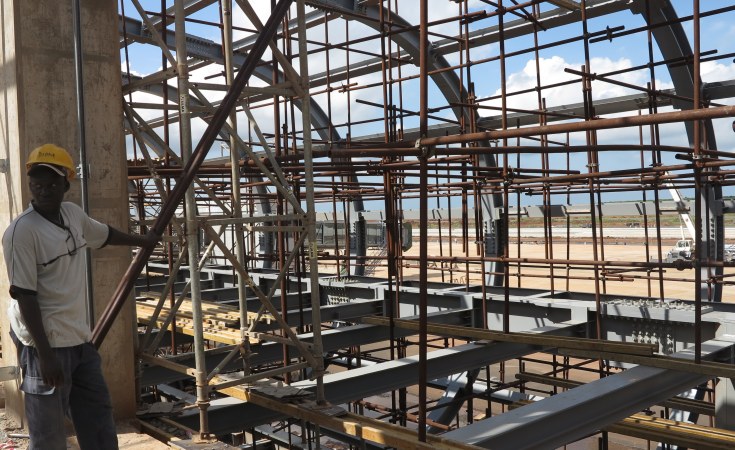Cape Town — Governance standards have improved significantly in Angola, Liberia and Togo over the past four years, but have declined in Eritrea and Madagascar, according to a leading survey assessing the quality of governance across Africa.
This year's edition of the Ibrahim Index of African Governance, released in Johannesburg on Monday, shows that Mauritius remains Africa's best-governed country, with a score of 82 out of a possible 100 on the index. Somalia is still the worst-governed nation, with a score of 8.
Liberia's score showed the biggest increase, from 32 in 2004/05 to 44 in 2008/09, the latest years for which data are available. Angola's score also rose steadily over the four years, from 31 to 39, while Togo's improved from 36 to 43.
All three countries nevertheless remained in the bottom half of the continent's rankings. Of 53 nations surveyed, Liberia was in 36th place, just ahead of Niger and Mauritania and immediately behind Cameroon and Ethiopia. Togo was in 39th and Angola in 43rd place.
Eritrea's score on the index dropped from 40 to 33 over the four years, and it was ranked in 49th place, only four places above bottom-ranked Somalia, where the federal government does not even control the whole of the capital, Mogadishu.
Madagascar, where there was an unconstitutional seizure of power 18 months ago, saw its score on the index drop from 56 to 48, but it remained higher on the rankings, as the 29th best-governed country in Africa.
Africa's best-governed countries after Mauritius are the Seychelles, Botswana, Cape Verde, South Africa, Namibia, Ghana, Tunisia, Lesotho and Egypt.
Somalia is followed as the worst-governed country in Africa by Chad, the Democratic Republic of Congo, Zimbabwe, Eritrea, Sudan, the Central African Republic, Equatorial Guinea, Guinea and Cote d'Ivoire.
The survey indicates that the continent's best-governed region is Southern Africa, with an average score on the index of 57, followed by North Africa (54), West Africa (50), East Africa (45) and Central Africa (38).
The Ibrahim index is produced by the Mo Ibrahim Foundation, which was founded by the Sudanese cellphone entrepreneur of the same name. The foundation describes the index as "a tool to hold governments to account and frame the debate about how we are governed."
Citing what it saw as the most interesting trends seen in this year's survey, the foundation said more than 40 countries had seen "some form of improvement" in the categories of sustainable economic opportunity and human development.
"Generally, African citizens are healthier and have more access to economic opportunities than was the case five years ago …
"However, the category that gender sits within, participation and human rights, makes for less encouraging reading. Thirty of Africa's 53 states have declined in participation and human rights performance over the past five years - notwithstanding some improvements around gender issues.
"Overall … the impressive sustained economic progress and human development on the continent stand in contrast to deterioration in national performance in security, rule of law, participation and rights."
The index measures the delivery of public goods and services by government and non-state entities, using four main categories - including 88 criteria - by which to judge the performance of nations: safety and the rule of law, participation by citizens and human rights, sustainable economic opportunity and human development.
It has laid emphasis in recent years on boosting the role of African scholars in producing the index, and this year cites the involvement of institutions from Benin, Egypt, Ghana, Senegal and South Africa.
Introducing this year's index, Mo Ibrahim said the index had strengthened the assessment of governments' commitment to gender equality by adding indicators assessing women's political and economic rights and examining legislation combating violence against women. It had also introduced indicators assessing the provision of anti-retroviral treatment.
But the survey acknowledged important shortcomings in the compilation of the index: "Many crucial indicators of governance, such as poverty and health statistics, could not be included as the data are not sufficiently comprehensive," it said. "The future provision of robust data, including health and poverty statistics, from African sources is a core priority."
Scores achieved in selected countries:
Botswana - 74
South Africa - 70
Namibia - 67
Ghana - 64
Lesotho – 60
Egypt – 59
Senegal – 57
Tanzania – 54
Malawi and Mozambique – 52
Uganda and Libya – 51
Kenya – 50
Rwanda and Madagascar – 48
Ethiopia and Liberia – 44
Nigeria - 43
Cote d'Ivoire – 38
Guinea and Equatorial Guinea – 36
Eritrea and Sudan - 33
Zimbabwe and Democratic Republic of Congo – 32


